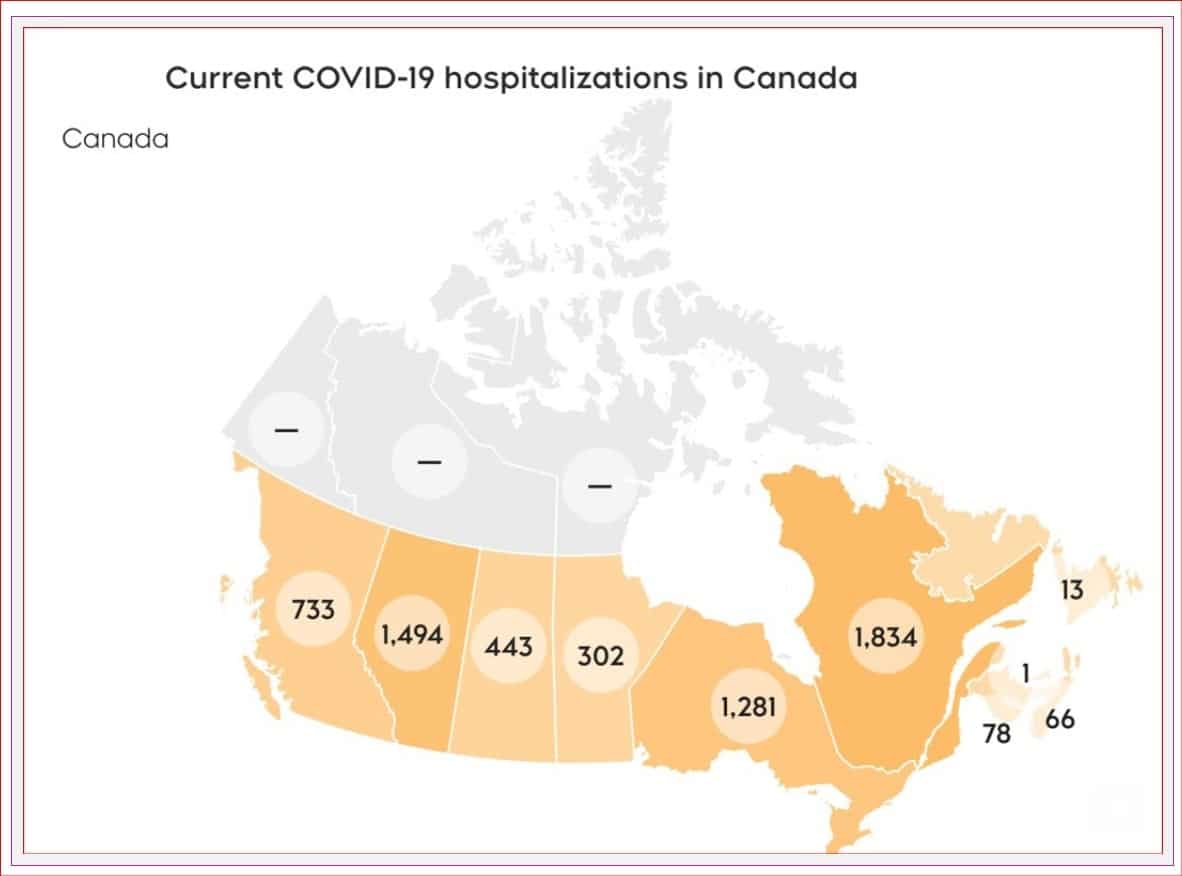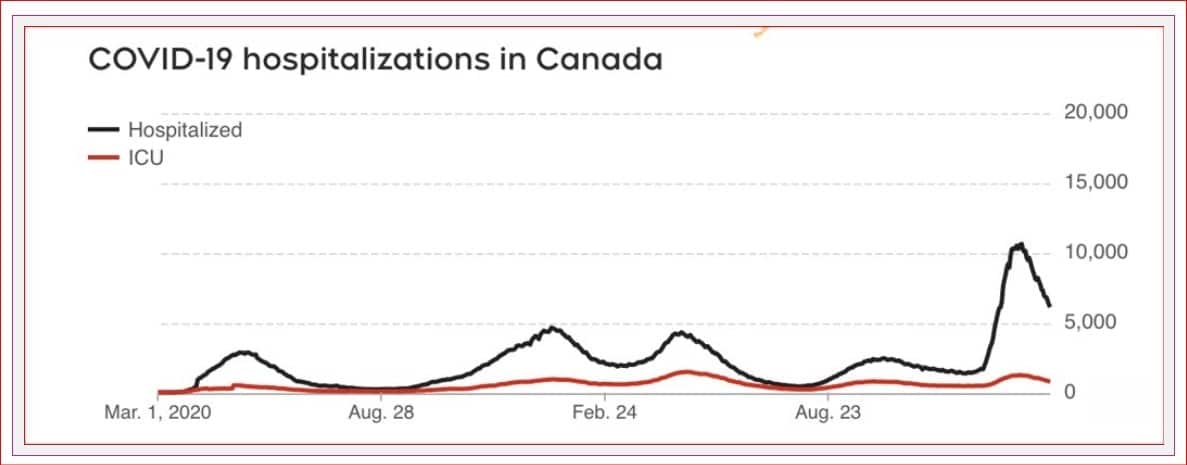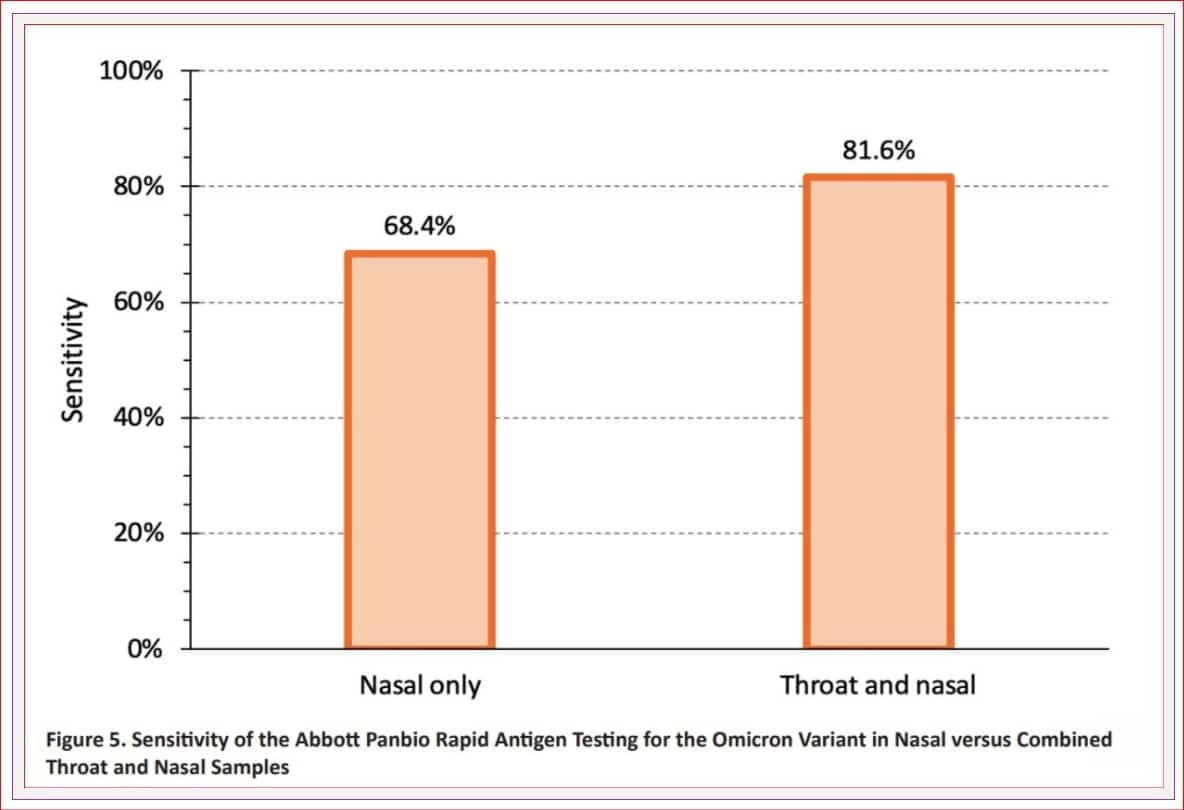Hello friends!
I hope you had a wonderful Family Day weekend and enjoyed some much-needed R and R!
Let’s dive into this week’s bad news, good news, the most commonly asked questions of the week, and my silver lining.
Dr. Dina, what is the bad news?
There have been over 418 MILLION cases of COVID-19 reported worldwide and almost 6 million deaths.
Over 3.2 million cases have been reported in Canada, with just under 36,000 deaths. There are currently around 6500 people hospitalized in Canada with COVID-19.


Hospitals in Hong Kong reached 90% capacity last week, stretching healthcare resources to their limit. Some patients are being treated on beds outside of hospitals.
To combat the rapid spread, Sinovac vaccines will be offered to children as young as three years of age next week.
What is the good news?
Almost 10.5 BILLION COVID vaccines have been given worldwide, representing 62% receiving their first dose, and 54% receiving at least two doses.
In Canada, 88% of eligible people (5 years +) received one dose, and 84% have received at least 2.
Hospitalization rates continue to fall and many provinces are lifting restrictions. Ontario Premier Doug Ford said last week regarding safety protocols, ‘we are done with it… Let’s just start moving on, cautiously. The world’s done with it, let’s just move forward.’
British Columbia lifted restrictions last week, reopened nightclubs and bars, and are allowing indoor weddings and funerals, all with full capacity. Vaccine passports remain in place.
In Alberta, students are no longer required to wear masks indoors or on the bus.
Ontario announced the elimination of vaccine passports in March, and capacity limits were increased last week. Many hospitals announced they will not be lifting vaccine mandates, and the University Health Network says its vaccine mandate is permanent.
Vaccine passports will be gradually phased out in Quebec by March 14. Nova Scotia will continue decreasing gathering limits, Newfoundland and Labrador are dropping masking, and vaccine passport measures my March 14.
Most common questions of the week
Is there an Omicron-specific booster?
Moderna announced last week that their Omocron-specific booster will be ready by August. They are gathering data about whether their booster offers better protection than a new dose of the existing vaccine.
They are hopeful a pan-vaccine will be ready in August to protect against COVID-19, influenza and other respiratory diseases all at once!
Could the recent Omicron wave prevent other waves?
According to some experts, the recent huge Omicron wave may help prevent dramatic future waves. Eighty million Americans have had COVID, and half of Americans have received a booster shot. Some estimates show that 73% of Americans may be protected against Omicron.
Of course, COVID-19 may mutate again, and 80 million Americans are still at risk. COVID continues to infect 130,000 and kills over 2,000 Americans per day.
Do travellers need to get PCR tests?
Canadians who have received at least two doses of the COVID vaccine will no longer have to PCR test, likely at the end of February. Travellers outside of Canada will likely be able to show a negative rapid antigen test instead. Right now, anyone travelling outside of Canada must provide evidence of a negative molecular test (such as a negative PCR test) before returning to Canada.
Can I get reinfected with COVID if I had it already?
We don’t have great data on reinfection rates for COVID-19, as we don’t perform PCR testing on everyone anymore. However, the United Kingdom Office for National Statistics analysis shows that the risk of reinfection was 16x higher from Omicron than with Delta.
I have many patients and family members who have confirmed reinfection with different strains of COVID. It is also possible to be reinfected with the same strain, but the risk of severe illness is lower as antibodies and immunity are in place.
When can my 12-17-year-old get a booster?
Kids 12-17 years of age are now eligible to get a booster dose six months (> 168 days) after their second dose.
With informed consent, 12-17-year-olds can get the booster as early as three months (84 days) after their second dose. I continue to recommend the longer interval as the evidence shows this leads to a more robust and long-lasting immune response and a lower risk of myocarditis/pericarditis than a shorter interval.
We recommend the Pfizer vaccine over the Moderna one for people 12-29 due to the lower risk of myocarditis and pericarditis with Pfizer.
Who qualifies for COVID-19 treatment?
Individuals with COVID symptoms can self-refer to COVID-19 clinical assessment centres for rapid assessment and possible testing and treatment. Available treatments, such as Sotrovimab and Paxlovid, work better if started early. Patients eligible for outpatient treatment include:
- Immunocompromised individuals 18 and older (vaccinated or unvaccinated)
- Unvaccinated individuals aged 60 and over
- Unvaccinated First Nation, Inuit and Métis individuals aged 50 and over, and
- Unvaccinated individuals aged 50 and over with one or more risk factors.
How accurate is rapid antigen testing for Omicron?
For months I have been sharing my experience on Instagram and TikTok that RAT testing does not pick up many cases of COVID-19. The Ontario Science Table published last week their data that shows that RAT doesn’t identify Omicron infections as well as Delta infection. They showed that the sensitivity of tests can be improved by collecting an oral and nasal sample (81.6% sensitivity) compared to a nasal-only sample (68.4%sensitivity).
How do you do increase the accuracy of your swab?
It is recommended to swab both cheeks and the back of the tongue or throat using a rotating motion for five seconds, followed by gently inserting the same swab approximately two centimetres into both nostrils and swirling three to four times.
This may seem excessive, but you want an accurate test, right? This may be easier to do on an older child than on a younger one. When possible, swab both cheeks, the back of the tongue or throat, then both nostrils with the same swab.

Courtesy of The Ontario Science Table
My silver lining of the week
It was nice having an extra day off with the kids this weekend. Now that kids are back in school, many of us feel a disconnect. They were around so much, and now they are back where they belong in school. The pandemic has really highlighted how much I adore my kids and love spending time with them.
I hope you have a great week ahead!


![[Dr. Dina News] IMPORTANT UPDATE re. VIRTUAL CARE](https://drdina.ca/wp-content/uploads/2021/01/dr-dina-kulik-kids-and-virtual-care-1a-400x250.jpg)
![[Dr. Dina News] COVID-19 Vaccine for Infants and Young Children.](https://drdina.ca/wp-content/uploads/2021/04/dr-dina-kulik-kids-and-vaccines-400x250.jpg)
![[Dr. Dina News] COVID-19 Vaccine for Infants and Young Children.](https://drdina.ca/wp-content/uploads/2022/04/DRD-1-400x250.jpg)






